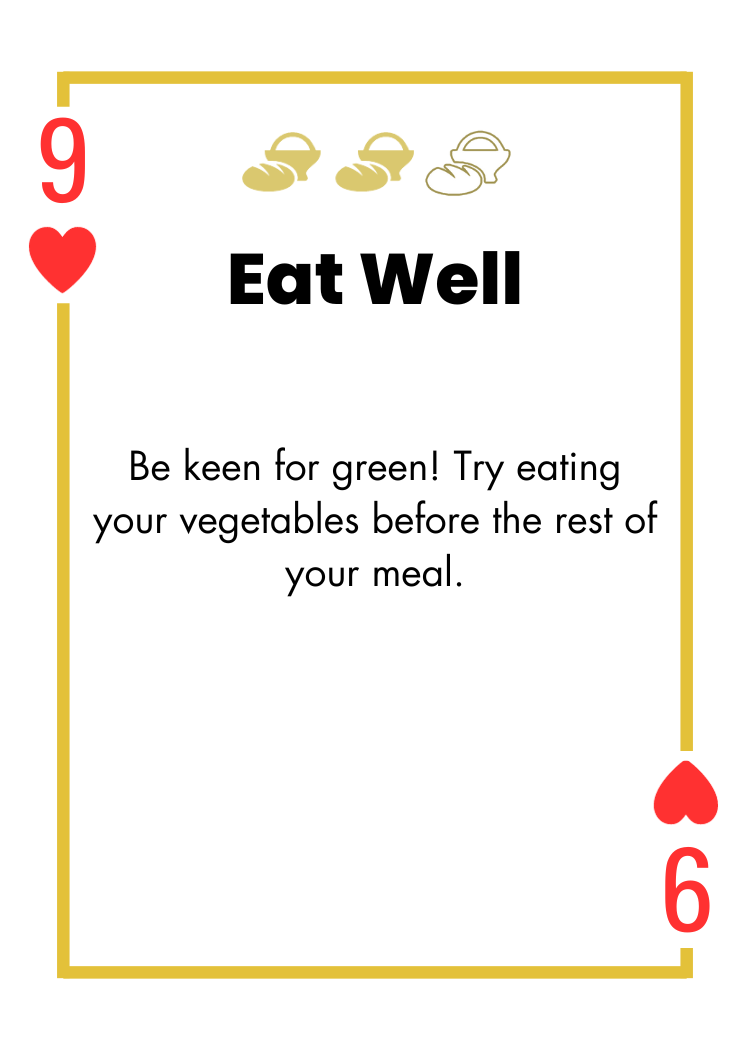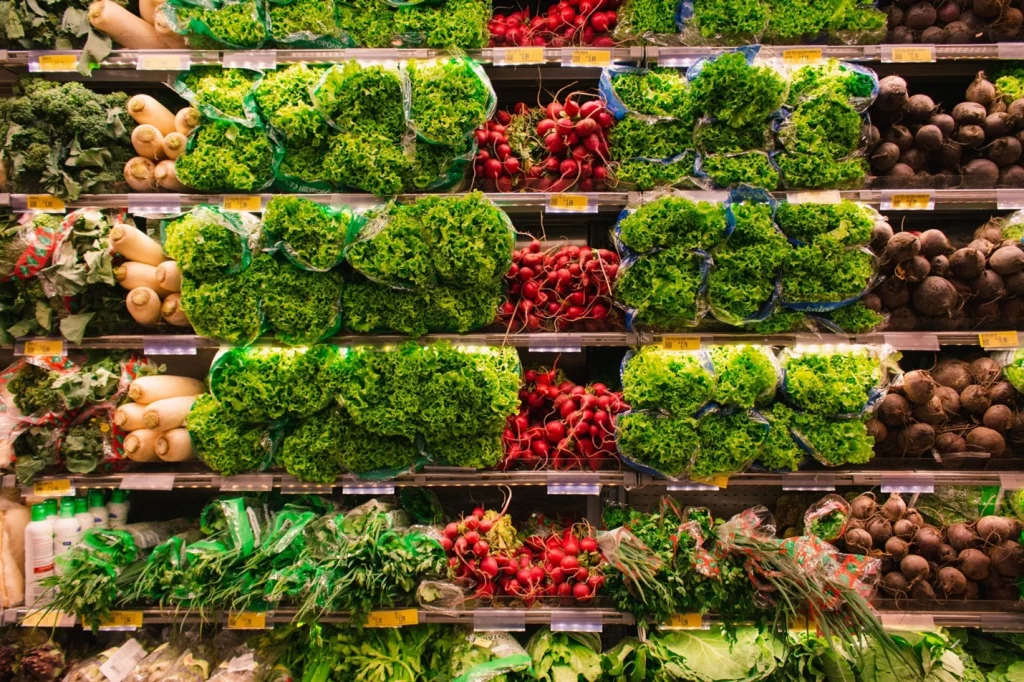9 of Hearts - Vegetables

Whether you love them or hate them, there’s no denying that vegetables and greens pack a punch when it comes to nutritional goodness. Consider adding vegetables or more vegetables to your current diet. There’s evidence to suggest that eating your greens first prompts the body to feel full earlier, so you don’t eat more than what you need.
The world of nutrition can get confusing, with conflicting messages hitting us from every angle. If you’d like some advice from a trusted source, sign up and get an appointment with our expert nutrition coaches – they’re all dietitians and exceptionally keen to help you find your solutions and make better dietary choices.

Eat at least five servings of vegetables every day. Vegetables provide fibre, vitamins, minerals, and antioxidants so include them in most meals and have them as a healthy snack. Lastly, Eat the Rainbow! Eat as many different coloured vegetables as possible. (Health Ed. New Zealand)
There is convincing evidence hypertension, coronary heart disease, and stroke risk are reduced by increasing the consumption of vegetables and fruit. Moreover, there is probable evidence the risk of cancer (in general) decreases with an increase in consumption of vegetables and fruit. (Boeing et al., 2012).
In addition, there is possible evidence that an increased consumption of vegetables and fruit may counteract body weight gain (Boeing et al., 2012).
The entire fruit or vegetable when possible, including the peel and membrane, should be consumed to increase fiber consumption. Hunger suppression studies suggest eating fruits and vegetables closer to the whole may decrease hunger although the exact mechanism is not fully understood. Fiber is unquestionably an active component of fruits and vegetables and is a good reason to eat them often (Slavin and Lloyd 2012).
Furthermore, the levels of antioxidant defense mechanism in humans decrease significantly with ageing. This decrease may result in the development of several types of diseases. Hence, a regular consumption of vegetable laden diet has definite positive effects on health since the phytonutraceuticals of vegetables can help protect the human body from several types of chronic diseases (Ramya and Priya 2019).
Fruits and vegetables are excellent sources of vitamins and minerals including vitamin A, vitamin C, folate, iron, calcium, magnesium, and manganese (Volpe 2019).
Fruits and vegetables, one example of a vegetable being beetroot, provide dietary nitrate and nitrate can lead to increased widening of blood vessels and blood flow in the body. Higher intakes of potassium from fruits and vegetables have also been shown to decrease hypertension (Volpe 2019). The increased blood flow helps to reduce the risk of high blood pressure.
Vegetables and fruit and the phytochemicals contained within them influence not only inflammatory processes but endothelial (a layer of cells which line blood and lymph vessels), various cellular redox and metabolic processes (Boeing et al., 2012).
The consumption of fresh vegetables supplies the consumer a variety of compounds that have a beneficial influence on human health. The phytochemicals found in fresh vegetables have anti-inflammatory, enzyme inhibiting, and bioactive features capable of opposing the detrimental activities of oxidants (Ramya and Priya 2019).
American Heart Association: https://www.heart.org/en/healthy-living/healthy- eating/add-color/fruits-and-vegetables-serving-sizes
Healthy eating, active living – HE1518. HealthEd. (n.d.). https://healthed.govt.nz/products/healthy-eating-active-living#4%20food%20groups
Ramya, V., and Patel, P. (2019). Health benefits of vegetables. International Journal of Chemical Studies, 7(2), 82-87.
Slavin, J. L., and Lloyd, B. (2012). Health benefits of fruits and vegetables. Advances in nutrition, 3(4), 506-516.
Volpe, S. L. (2019). Fruit and vegetable intake and prevention of chronic disease. ACSM’s Health & Fitness Journal, 23(3), 30-31.


 See Other Cards!
See Other Cards!